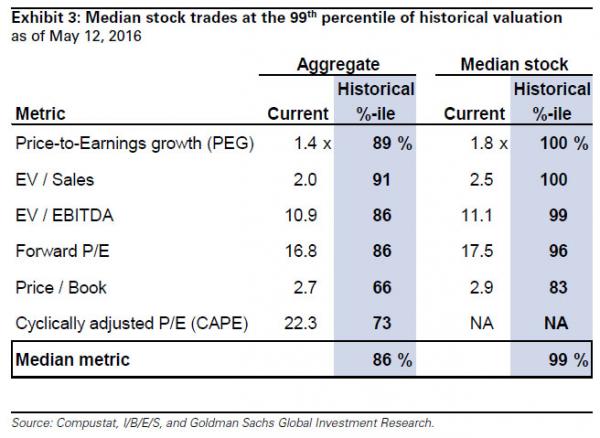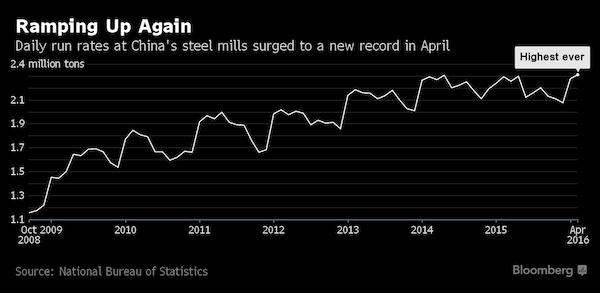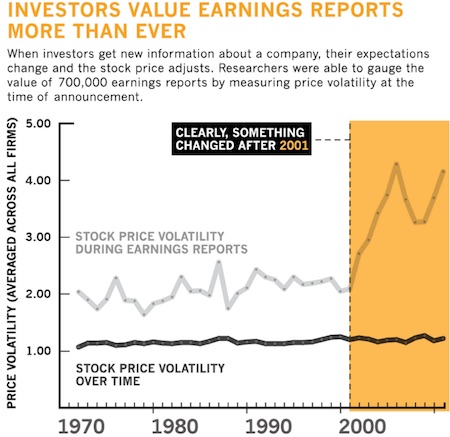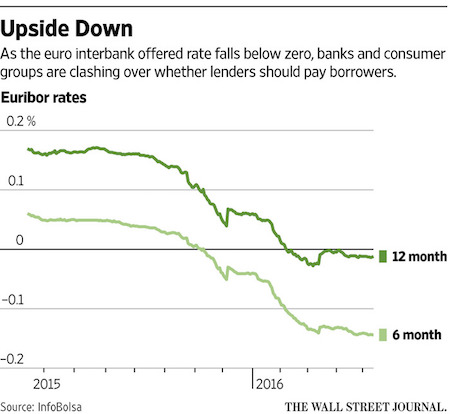
Paul Gauguin Horsemen on the beach �1902



DeSantis
https://twitter.com/i/status/1836920430306939046

Border
HOLY SH!T
Former Chief BP Agent Aaron Heitke was ordered by Biden-Harris to cover up the disaster at the border:
1. Data hidden on terror encounters
2. $150k flights to fly illegals to TX
3. 0 resources to track fentanyl pic.twitter.com/kxUtEBpxGR— End Wokeness (@EndWokeness) September 19, 2024

Trump Oprah
Trump on the Oprah Show in 1988. Future historians will study this.
— End Wokeness (@EndWokeness) September 20, 2024

Teamsters
YESTERDAY: Nearly 60% of @Teamsters are voting for President Trump.
TODAY: 70% of Steamfitters Local 638 are voting for President Trump.
ALSO TODAY: It’s estimated 65-70% of UAW members are voting for President Trump.
Hardworking Americans know President Trump HAS THEIR BACK. pic.twitter.com/fFOrRs9aXd
— Byron Donalds (@ByronDonalds) September 19, 2024

Diddy
https://twitter.com/i/status/1836502746024866232

Watters
https://twitter.com/i/status/1836932336463593715

Oprah Kamala
https://twitter.com/i/status/1836961049326563573
Remember, this dunderhead is not only our Border Czar, but Biden appointed her our AI Czar as well. Having an idiot in charge of Artificial Intelligence is an irony too cruel to digest. In her own word salad: pic.twitter.com/IB1GxaNnum
— James Woods (@RealJamesWoods) September 20, 2024

Good story
https://twitter.com/i/status/1837102340177858821

Counting
https://twitter.com/i/status/1836926912402444589

Hezbollah
Hezbollah is not a terrorist organisation.
Western "terrorism lists" are ridiculous.
The west is not "the world".
The world sees Israel for what it is: a criminal state.
Telling it like it is on Belgian TV yesterday.#Deafsp pic.twitter.com/ygLt28bw0R— Dyab Abou Jahjah (@Aboujahjah) September 20, 2024

As democracy is perfected, the office of president represents, more and more closely, the inner soul of the people. On some great and glorious day the plain folks of the land will reach their heart’s desire at last and the White House will be adorned by a downright moron.
H.L. Mencken, On Politics: A Carnival of Buncombe


There are 5 teams out there intent on killing a presidential candidate, and it hardly makes the news. How is that possible? That fact in itself should make headlines.
• Multiple ‘Assassination Teams’ Targeting Trump – Matt Gaetz (RT)
Five “assassination teams” are currently attempting to kill former US President Donald Trump, Florida Representative Matt Gaetz has claimed, citing sources in the Department of Homeland Security. Speaking to Breitbart News on Thursday, Gaetz condemned an apparent attempt on Trump’s life last weekend as “tragic” and “avoidable,” claiming that there is insufficient security around the former president to protect him from harm. Gaetz went on to claim that he recently met with an official from the Department of Homeland Security (DHS), who told him that there are “at least five teams in-country that are geared toward killing Trump.” “Three of them that we know are foreign in nature. Two of them we know are domestic in nature, and that calls for a force protection that we do not have around the former president right now,” Gaetz continued, noting that the foreign teams are linked to Ukraine, Iran, and Pakistan.
These teams are able to walk around freely in the US, Gaetz claimed, because there is “insufficient scrutiny to stop them from doing so.” Over the last two months, Trump has survived two assassination attempts. The former president and Republican presidential candidate narrowly avoided death at a campaign rally in Pennsylvania in July, when a bullet fired from around 150m away grazed his ear. The gunman fired from a rooftop that had inexplicably been left unprotected by the Secret Service, and managed to kill one rally goer and injure two others before he was shot dead by a sniper.
The second attempt took place at Trump’s golf course in West Palm Beach, Florida, on Sunday. A gunman aiming at Trump from behind bushes was spooked by Secret Service agents and arrested after he fled the scene. The suspect, identified as Ryan Wesley Routh, had unsuccessfully attempted to join the Ukrainian military in 2022, and afterwards embarked on a scheme to recruit former Afghan commandos to fight for Kiev. Routh was questioned by US Customs and Border Patrol (CBP) agents upon his return to the US later that year. According to Gaetz, the agents “thought his story was so suspicious that he was recruiting freedom fighters all over the world to go fight in Ukraine, and when they asked him how he was financing this, he said, ‘Oh, well, my wife is paying for it.’”
The CBP referred Routh to the DHS’ investigations unit, which “declined to even proceed with an investigation,” Gaetz continued. “They just stopped and let the guy in the country. And we’ve got a lot of questions about that.” With two assassins able to come within firing range of Trump, Gaetz said that some of his Republican colleagues “have not ruled out a mole inside the Secret Service providing information about points of vulnerability.” “I’ve not seen evidence of that,” the Florida Republican clarified, “but I’ve got colleagues that are very, very smart at this who say they can’t rule that out, given some of the anomalies and the fact pattern here.”
Gaetz
https://twitter.com/i/status/1836847604769947811
Why is a @SecretService agent, involved in the Trump assassination attempt, hiring an anti-Trump deep state lawyer?
What’s his agenda? pic.twitter.com/BQeURn7V2x
— Jesse Watters (@JesseBWatters) September 21, 2024

The editors at Strategic Culture say it all comes from both sides. But, as Elon Musk said, nobody has tried to kill Biden or Harris. That is a big difference.
• Leader of The Free World? (SCF)
Donald Trump, the Republican presidential candidate, has repeatedly warned that the United States “is becoming a Third World nation.” Too late, it seems. There are plenty of signs that the U.S. is already a failed state of dictatorship, poverty and violence – albeit one that sports the biggest number of billionaires and supposedly the largest military power in the world. That dichotomy is not a weird aberration. It is central to why the United States of America is a failed state. So far, in the oligarchic-controlled 2024 election cycle, there have been two assassination attempts on Trump. On July 13, he narrowly escaped death after being shot in the ear by a sniper while speaking at a rally in Pennsylvania. Last weekend, a second sniper was thwarted at a golf course in Florida by Secret Service agents.
With seven weeks counting down to election day on November 5, the atmosphere across the United States is fraught with violence and a palpable sense of extreme crisis. Both candidates, Trump and his Democrat rival Kamala Harris, have labeled each other as “threats to democracy.” The level of maligning rhetoric and vilification is unprecedented and cofounds a “normal” political process. It is reasonable to cast the two parties’ campaigns as being guilty of inflaming the climate of hatred, violence, and intense polarization bordering on civil war. The corporate-controlled news media is discernibly in favor of Harris, creating a climate of enmity towards Trump, which is reciprocated by his base toward Democrats. The dysfunctional process is accentuated by many former senior Republican figures publicly endorsing the Democrat, and repudiating Trump as “unfit to serve”.
Kamala Harris and the Democrats may denounce the assassination attempts on Trump and assert that “there can be no violence in American politics”. But Harris’ election ads have painted Trump as a traitor and appeaser of foreign dictators. This seems to have been a motivating factor behind the latest assassination incident. The shooter is a fervent supporter of the U.S.-led proxy war in Ukraine against Russia. The Harris campaign has targeted Trump as a domestic enemy over his election pledge to end the war in Ukraine through diplomacy. While no one has fired a shot at Harris during her rallies – so far anyway – nevertheless, Trump and his supporters have recklessly whipped up violence against election officials and immigrants who are perceived as pro-Democrat. The former president has persisted in making baseless claims that the 2020 election was stolen from him through systematic fraud.
Trump has already declared that he will win the 2024 contest, and if he loses then that will be due to another alleged giant fraud. He is warning that election officials in battleground states will be liable for jail. The hysteria and paranoia generated by Trump has led to a surge in attacks and threats against election officials. The upshot is the corroding of any democratic legitimacy of the United States and the principle of peaceful transfer of political power. This is the abysmal state of American politics. The viability of its democratic process is in tatters. A years-long trend saw a large portion of the population – nearly half of all eligible voters – not even bothering to participate in elections such was the disdain for the two-party duopoly. In addition, now an increasing number of those who vote do not trust the official result. Blaming this inherent decay on Kremlin disinformation and meddling is as contemptible as it is risible.

“Democrats [..] can’t counter this [..] in any meaningful way except with suburban wine moms and the TDS sufferers who watch The View.”
• What “Saving Our Democracy” Really Means (AmG)
Policy positions are historically key to making the case for one’s presidential campaign, and up until just recently, the Kamala Harris campaign avoided such conversation. Now the Harris-Walz campaign has released a snapshot of how they intend to govern, and we can’t help but notice a lot of lofty promises and empty socialist platitudes with very little detail as to how it will get done. And more importantly, why this “New Way Forward” is now needed after the Democrats’ last four years in the White House. Was that the “Wrong Way Forward?” Average voters will notice this, so the campaign must now really control access to the candidates to keep them from having to answer tough questions. With less than sixty days remaining in the 2024 election cycle, we expect the Harris-Walz campaign to continue evading unscripted interviews while putting campaign ads in front of the media to try to make sense of that, which is clearly nonsense. Is this a brilliant strategy, as has been stated by some media outlets?
Or is this the latest in a series of strategic missteps put forth by the Democrat Party that would somehow gaslight the public into believing that the economic and societal disaster caused by the Biden-Harris administration simply did not happen? We actually think the “basement strategy” is smart because the Democrat machine cannot change course at this point. The machine that installed Harris-Walz as the presidential ticket is too invested in its socialist agenda and is hopelessly estranged from the American public to even consider a course correction toward the center. The lying must continue to sell a vision for America that very few people want. We saw this over four days of the Democrat National Convention. It was an in-your-face personality disorder freak show put on by a debased group of guilt-ridden people who must lie about everything to obliterate the memory of the catastrophic Biden-Harris term in power.
Democrats know that they are on the wrong side of this cycle’s three main issues: the economy, the migrant crisis on the southern border, and the feckless Biden-Harris foreign policy that has led to ongoing disasters in Ukraine and the Middle East. Now throw in Americans’ realization that the Biden-Harris withdrawal from Afghanistan (which we were reminded of when Democrats like President Biden politicized Trump’s visit to Arlington National Cemetery last week at the invitation of the fallen 13 who died at Abbey Gate while having done far worse himself) was a deadly catastrophic disaster with long-term geopolitical consequences. Joe Biden—against the advice of his own joint chiefs of staff, NATO allies, and the Afghan government—pulled out so he, rather than President Trump, could claim to have ended America’s longest war. The withdrawal from Afghanistan was always about Biden’s so-called “legacy.” Democrats, Biden, and Kamala Harris, the last person in the Situation Room with the president, now own this debacle.
This is now Biden’s legacy of failure. It was even more shameful than the final exit of US forces from Saigon in April 1975. Democrats, no matter how hard they try, can’t counter this. Neither abortion (which Trump has partially defused as a wedge issue in some of the crucial swing states) nor the New Green Deal (that a majority of Americans oppose) can counter this in any meaningful way except with suburban wine moms and the TDS sufferers who watch The View. The machine must now aim its might to prop up Vice President Harris. This is the same person who covered up Biden’s infirmity for most of his four-year term, who accomplished nothing except enable inflation-busting spending bills with her tie-breaking votes in the deadlocked 50-50 Senate, and who will continue to be abetted by a traitorous legacy news media. All in the name of “saving our democracy.” This is as fake of a war cry as we have ever heard.

“Everything else — computerized (hackable) ballot-counting machines, mail-in ballots, early voting, automatic voter registration by means of other government transactions that have nothing to do with elections (motor-voter acts) — only insures election fraud..”
• Mad to the Max (James Howard Kunstler)
If anything like civil war ignites in this country, the sides will not be the political Red and the Blue but the sane and the insane. Now it happens, unfortunately, that the insane are driving the engine of government. They have been at war with the people of this land for years, depriving them of livelihoods, stuffing them into prison, breaking the social contract, wrecking the country’s relations with the rest of the world, and belaboring the peoples’ minds with one insulting absurdity after another. They comprise a bizarre coalition of the permanent bureaucracy, the Democratic Party, and the news media. The permanent bureaucracy includes its own machine for making war on citizens: the intel blob, whose tentacles reach into other agencies: Homeland Security, the State Department, the so-called Justice Department, the Pentagon, the myriad Public Health offices, and the shadowy clique that stands-in for a disabled president in the White House.
You can tell they are insane because they are driven by a single motivation: to remain in power for no other purpose than to escape responsibility for their many crimes against the people. This is insane behavior because it depends on the proposition that reality does not matter, that reality is optional, that there is no such thing as truth, and if it happened to exist, to be a thing, it would have no greater value to the human project than its opposite, untruth. The greatest absurdity of the moment, is the idea that Americans might desire to continue under the rule of this evil coalition devoted to unreality and untruth, that is, to vote for candidates of the Democratic Party. Its greatest crimes, of course, are the lawless measures taken to pervert the very elections that might allow them to retain power in office.
Some of it is well-hidden and abstruse, such as the machinations of election lawfare manager-in-chief, Marc Elias, who for many years has used the courts and the state legislatures to fiddle election rules that make it impossible to account for who is actually casting the votes. This, you understand, is insane. What sovereign people would seek to institutionalize election fraud? Some election crime is just in your face. The open border policy may have many nefarious angles, but an obvious one is stuffing the voter rolls with live bodies that have names attached, which can be bundled and harvested in ballot form like so many sheaves of oats. No one is fooled by this. Yet the Democratic Party has its heavy hand on the lever of power that controls entry to the country.
Alejandro Mayorkas, the Secretary of Homeland Security allows this to happen and bullshits Congress in open committee hearings. Congress has impeached him for this affront and the Democratic majority Senate has declined to hold the attendant trial — because stuffing the voter rolls with illegal immigrants allows them to remain in power. The remedies for this dastardly mess are pretty simple and straightforward: return to paper ballots cast on one election day, requiring voter ID that amounts to proof of citizenship. Everything else — computerized (hackable) ballot-counting machines, mail-in ballots, early voting, automatic voter registration by means of other government transactions that have nothing to do with elections (motor-voter acts) — only insures election fraud. Sane people do not seek to defraud themselves.
Here is my interview Monday 9/19 with the Swiss national Piero San Giorgio:

No, Netanyahu will.
• Harris Will Destroy Israel – Trump (RT)
US Republican nominee Donald Trump has pledged to be a “defender” of Jewish Americans and warned that Israel could cease to exist if Democratic candidate Kamala Harris is allowed to win the upcoming election in November. Speaking at the Israeli-American Council National Summit in Washington on Thursday, Trump expressed concern that recent polling numbers suggest Harris, the current vice president, has a large lead among Jewish-American voters. Without specifying which poll he was referring to, the former president expressed dismay that he was being supported by just 40% of Jewish voters in the US. “That means you got 60% voting for somebody that hates Israel,” Trump said, referring to Harris who he described as a “bad Democrat.” He also claimed that the Democratic Party as a whole is “very bad” to Israel.
The Republican went on to state that “any Jewish person that votes for [Harris] or the Democratic Party should have their head examined.” In one of his more controversial comments, he said: “if I don’t win this election,” then “the Jewish people would have a lot to do with a loss.“ “It’s only because of the Democrat hold or curse on you. You can’t let this happen,” Trump stressed, warning that if he doesn’t win and Harris becomes president then “Israel, in my opinion, within a period of two to three years, will cease to exist. It’s going to be wiped out.”
Trump also claimed that he hasn’t been “treated properly” by Jewish-American voters and recalled his past achievements in US-Israeli relations. “I gave them Golan Heights. I gave them the Abraham Accords. I recognized the capital of Israel and opened the embassy in Jerusalem. And, most importantly of all, I terminated the Iran nuclear deal.” “I was the best friend Israel ever had,” the former president said, adding that if he is elected in November, he will be the “defender” and “protector” of Jewish-Americans and will be “the best friend [they] have ever had in the White House.”

“Robbing the Future to Appease the Present” is what every politician does.
• Kamalanomics: Robbing the Future to Appease the Present (Peter Schiff)
As the 2024 presidential race ramps up, Vice President Kamala Harris has unveiled an economic agenda that she claims will lower costs for American families and boost economic growth. However, her proposals reveal a reliance on heavy-handed government intervention that will harm the very people she aims to help. At the core of Harris’ approach is a fundamental distrust of free markets and a belief that the government can effectively micromanage the country’s economic systems. One of Harris’ most concerning proposals is her plan to impose federal limits on price increases for food producers and grocers. While rising food prices are undoubtedly a burden for many families, attempting to control prices through government intervention is a recipe for disaster. Price controls invariably lead to shortages and black markets. Looking at the failures of price controls in countries like Venezuela is enough to see the devastating consequences of such policies.
Instead of allowing market forces to efficiently allocate resources and incentivize increased production, Harris’ approach will result in reduced investment in the food industry and potential shortages of staple goods. Harris’ housing proposals similarly rely on heavy-handed government intervention. Her plan calls for the construction of 3 million new housing units to ease supply shortages, along with providing $25,000 in down payment support for first-time homebuyers. Having the federal government directly subsidize construction on this scale risks crowding out private investment, leading to crippling public sector inefficiencies. Instead, housing reform should focus on removing regulatory barriers to new construction at the local level. Restrictive zoning laws and mandates are the primary culprits behind America’s housing shortage. By incentivizing states to improve these processes, we would promote private sector housing development without incurring massive federal spending. The solution is less government intervention, not more.
Harris’ tax proposals also reflect a misguided belief that we can tax and spend our way to prosperity. By seeking to raise taxes on corporations and high-income individuals, she risks reducing the capital investment needed to drive productivity growth and real wage increases. The vice president also plans to expand various subsidies for housing, childcare, and other expenses. While they appear to give support to families, these policies fail to address the root causes of affordability challenges and risk creating new forms of government dependency. A better approach would be to pursue policies that decrease the government influence in the economy which causes the inflation that is harming families.Proponents of Harris’ plan argue that it will provide much-needed relief to struggling American citizens. However, the long-term consequences outweigh the potential short-term benefits.
According to an analysis by the Penn Wharton Budget Model, Harris’ economic proposals would increase federal deficits by $1.2 trillion over the next 10 years on a conventional basis, and by $2.0 trillion when accounting for macroeconomic effects. This massive increase in government debt will tend to crowd out private investment and lead to higher interest rates, potentially triggering a recession. Moreover, the Penn Wharton analysis projects that Harris’ plan would actually reduce GDP by 1.3 percent by 2034 and by 4 percent within 30 years, relative to current law. This decline in economic output would translate to lower wages for workers across all income groups. The model estimates that pre-tax wages would fall by nearly one percent over the next decade and by 3.3 percent by 2054.

Too late. 6 weeks left.
• Oklahoma Removes Over 450,000 Ineligible Voters From Rolls (ET)
Gov. Kevin Stitt (R-Okla.) said on Wednesday that Oklahoma has removed over 453,000 ineligible and inactive voter registrations as part of a process to keep voter lists accurate. State officials said the law requires Oklahoma to update voter lists to ensure only eligible voters participate in elections. The audit and removal of names began in early 2021 to keep voter lists up-to-date, according to the governor’s office. Since then, almost 100,000 deceased people, over 140,000 who moved out of state, more than 5,000 convicted felons, and nearly 200,000 inactive voters have been removed from voter rolls. Inactive voters are those who did not respond during the address checks. “Voting is our most sacred duty as Americans— and every Oklahoman wants to know their vote is securely cast and properly counted,” Stitt said in a Sept. 18 statement.
Just over 2 million people were registered to vote in Oklahoma as of the end of August, half of whom are registered as Republicans, according to data from the state Election Board. Oklahoma has over 534,000 registered Democrats, over 363,000 Independents, and more than 18,000 Libertarians. The governor said state officials have gone above and beyond to ensure only eligible Oklahomans can vote in the state’s elections. “All this is going to do is discourage people who are already less inclined to show up to the polls anyway in a deeply red state,” said Democratic state lawmaker Rep. Mauree Turner, who represents Oklahoma City, in comments to Oklahoma Voice. “My first thought is how many people are in there that have been purged and don’t know that they’ve been purged.” Secretary of State Josh Cockroft said the steps were necessary and taken in collaboration with the governor’s office, state election officials, and lawmakers.
“We’ve aggressively pursued policies to ensure voting is secure and accurate, and we’re innovating to protect our elections from emerging technology like AI,” Croft said. “In Oklahoma, every eligible citizen will have their vote counted and their voice heard.” In recent years, Oklahoma has implemented a range of election integrity measures. The state continues to use hand-marked paper ballots, which are counted by e-scan machines that are not connected to the internet. Election officials also work closely with Oklahoma Cyber Command to protect the system from potential hackers. Paul Ziriax, secretary of the bipartisan State Election Board, said the state’s election security is among the best in the nation. “Oklahoma has a long tradition of doing elections right,” Ziriax said. “Recounts and post-election audits have consistently proven the accuracy of Oklahoma’s voting system, and our laws and procedures are designed to ensure the integrity and security of our elections.” Oklahoma residents have until Oct. 11 to register to vote in the Nov. 5 general election.

“Marie Macronette”.
• European Elite Swings Right to Crush the Left (DeMartino)
For years the neoliberal ruling class in Europe has warned about what they describe as the far-right parties in their countries. They cautioned that parties like the Alternative for Germany (AfD), and the National Rally (RN) in France represent a dangerous and potentially violent swing toward fascism. Despite years of hand-wringing about the populist right in Europe, the elite in many European nations have proven their preference for those groups over any momentum by leftists who will implement policies that will match the EU’s liberal marketing materials. The EU presents itself as a beacon of democracy, with free speech and a vehement commitment to human rights. But their actions have never matched that propaganda. “What we’re witnessing is the failure of the European dream, if you like. The idea of this community of nations, which at its heart was always a neoliberal financial cabal.
And, it’s failing. It’s falling apart,” explained Phil Kelly, a Belfast-based political commentator and socialist activist told Sputnik’s Political Misfits. “It hasn’t delivered in its kind of mythical promises. And the reality of what it’s producing is increasingly stark economic failure and decline and declining living standards.” In France, President Emmanuel Macron appointed centrist-right Michel Barnier as prime minister. Barnier’s party came in fifth during the national elections. The New Popular Front, the leftist party that came in first place, offered several prime minister candidates to Macron, but they were refused. While the French left have drawn up impeachment documents against Macron, the leader of the RN, Marine Le Pen, gave her tacit approval for the Barnier appointment. The sign is clear: Macron will negotiate with the RN, but not the left. “This guy is an EU stooge, the blandest of the bland, you know, somebody that was probably spawned in a laboratory in Brussels, whose veins pump with blue EU blood. Not someone chosen by the people,” Kelly said of Barnier.
“If France is going down a route with Macron…where he desperately clings to power, clings to preserve his own position for a little longer, the legacy of that is to sow a bitter harvest that one day he will have to deal with, and that is that you’re making an enemy of the French people by denying democracy,” Kelly concluded, dubbing Macron “Marie Macronette” as an “isolated political establishment with no connection to the people.” In Germany, after three people were fatally stabbed at a street festival by a Syrian man who said he was inspired by ISIS* German Chancellor Olaf Scholz’s party all but adopted the AfD’s immigration policy, closing its borders and ending, at least temporarily, the Schengen-Visiting Zone, which since 1985 has allowed visa-free travel between most EU countries. “While the kind of conservative center parties and the liberal elites within Europe won’t use the extreme rhetoric that you hear from the AfD or Le Pen and France or other far-right groups, their actions really demonstrate that they are the same,” argued Kelly.
“And any serious student of history will tell you and understand fully that at times of crisis, liberals will always align with fascists, and that’s exactly what we’re seeing.” Kelly pointed to the ruling parties in Europe allowing migrants to drown in the Mediterranean, supporting terrorist groups in Syria in an attempt to overthrow a sovereign state, supporting and arming neo-fascists in the Ukrainian military, and the support of genocide against the Palestinian people as evidence that the center-left and center-right parties are, at best, no better than the populist right that they say they fear. “Certainly, the blood soaking their hands is as thick and probably more splattered across their faces than anyone else,” Kelly said. “This political establishment are every bit as racist, every bit as despicable as the brown-shirted, goose-stepping thugs that they tell you to be scared of. They’re one and the same, they rely on each other,” he added.

“..some cases from other countries, including South Korea, are in the process of being registered in the French justice system.”
• Telegram’s Cooperation With French Authorities Led to Other Requests (Sp.)
The Telegram messenger’s cooperation with the French justice system after the detention of its founder Pavel Durov has led to requests for information from other countries as part of the investigation into cybercrime, Le Figaro newspaper reported, citing sources. According to the report, the messenger’s cooperation with the French authorities benefits all European countries that are members of Eurojust (European Union Agency for Criminal Justice Cooperation). Thus, one of the EU member countries was able to receive a response to its requests regarding a group in Telegram that had ordered about 100 murders. In addition, “a major international power” also decided to take advantage of the messenger’s willingness to cooperate, it said. The report said some cases from other countries, including South Korea, are in the process of being registered in the French justice system.
Earlier, the Liberation daily reported that after Durov’s arrest in France, the Telegram messenger began responding to investigators’ requests and providing information “capable of identifying criminals in investigations of crimes against children.” Paris prosecutor Laure Becco earlier said Telegram attracted the attention of investigators due to the lack of response to requests to identify a number of cybercriminals, in particular in child pornography cases. The Russian-born tech entrepreneur was detained at a Paris airport on August 24 on charges related to criminal uses of his messaging app, including terrorism, child pornography, drug trafficking, money laundering and fraud. He was released on August 28 on a €5 million ($5.5 million) bail and is barred from leaving France.

“At the core of the filing is the decision by Musk to inform authorities that he would not be appearing for a September 10 testimony just three hours prior..”
• SEC to Seek Sanctions Against Elon Musk in Twitter Probe (Sp.)
The US Securities and Exchange Commission (SEC) on Friday indicated in a court filing that it could seek to sanction billionaire Elon Musk for failing to testify in its probe of the Twitter social platform that he purchased and renamed X. Citing multiple instances where Musk had failed to respond to opportunities to testify on the $44 billion Twitter deal, the regulator implied in the court action that it was only exercising the notice given to his counsel “that among other things, we may seek sanctions against Mr Musk.” At the core of the filing is the decision by Musk to inform authorities that he would not be appearing for a September 10 testimony just three hours prior.
Reports indicate that Musk had been present that day in Florida to oversee the launch of the SpaceX Polaris Dawn mission. The SEC wants to query Musk to determine if he broke any federal securities laws when he bought Twitter in 2022 and rebranded it X. Musk has accused the SEC of trying to “harass” him through unwarranted investigations. Additionally, his lawyers have said sanctions action would be “drastic” and unnecessary against their client.

“..Western officials warned Kiev that “a full Ukrainian victory” would require immense resources that neither the US nor Europe can provide..”
• US To Delay Ukraine Aid Over Shortages – CNN (RT)
The weapons stockpile shortages will likely force Washington to delay the shipments of promised military aid to Ukraine, CNN reported on Friday, citing two US officials familiar with the matter. The report comes as Kiev has been asking foreign backers to speed up the delivery of arms and to lift the remaining restrictions on the use of longer-range missiles for strikes deep into Russia territory. According to the Pentagon, the US has $5.9 billion left in the special congressionally approved mechanism (PDA) aimed at fast-tracking aid for Kiev. However, the aid packages have been getting smaller in recent times as the weapons stocks are dwindling, CNN said. The currently available PDA is set to expire within the next two weeks since the House of Representatives failed to pass an extension on Wednesday. The White House may be forced to charge its approach, “announcing large military aid packages that will take months to deliver,” as opposed to smaller shipments, the channel said.
Washington believes Kiev will need at least half a billion worth of PDA per month throughout fiscal year 2025, CNN report, citing a senior White House official. Last week, the Wall Street Journal reported that Western officials warned Kiev that “a full Ukrainian victory” would require immense resources that neither the US nor Europe can provide. Ukrainian leader Vladimir Zelensky is expected to present his new “victory plan” to US President Joe Biden next week. The success of the plan would “directly depend on the approval and support of the United States,” Zelensky said. Ukrainian commanders and politicians have repeatedly blamed the delays in weapons deliveries for battlefield losses and the failure to hold off Russian offensives. Moscow, meanwhile, has stated that no amount of Western aid would stop its troops in Ukraine.

Someone really got to the Swiss. First neutrality, now this. CERN needs the Russian scientists to function, and they all know it. It’s science, not politics.
• Switzerland To Expel Hundreds Of Russian Scientists (RT)
Hundreds of Russian researchers working at the particle physics laboratory CERN in Switzerland will have to leave the Alpine country later this year, the journal Nature reported on Wednesday. The European Organization for Nuclear Research (CERN) plans to end its cooperation agreement with Russia on December 1, banning all scientists affiliated with the nation from its premises, the journal said. The scientists will also be stripped of any French or Swiss residency permits they currently hold, according to the report. CERN already announced its plans to cut ties with the Russian specialists earlier this year. It decided not to extend its cooperation agreement with Russia back in December 2023. The existing one expires on November 30. In March, CERN’s head of media relations said that the organization still had “fewer than 500 specialists still associated with any Russian organization,” adding that none of them would be able to work at CERN once the agreement expires.
The organization began cooperating with the USSR back in 1955, although neither the Soviet Union nor Russia has ever been full members. Russia applied for associate membership in 2012 but withdrew its application six years later and has held observer status since. In March 2022, CERN suspended this observer status in response to the start of Russia’s military operation in Ukraine. Russia contributed financially to the organization and helped build the Large Hadron Collider, the world’s largest and most powerful particle accelerator, which achieved its first collisions in 2010. The collider has allowed scientists to confirm the existence of the Higgs boson, the particle that gives mass to other particles such as electrons and quarks. The loss of Russia’s contribution to a high-intensity upgrade of the collider scheduled for 2029 will cost CERN some 40 million Swiss francs ($47 million), according to Nature.
Cutting ties with Russia will also mean a setback for scientific research, Hannes Jung, a particle physicist at the German Electron Synchrotron in Hamburg, who also works with CERN, told Nature. “It will leave a hole. I think it’s an illusion to believe one can cover that very simply by other scientists,” said Jung, who is also a member of the Science4Peace Forum, a group that campaigns against restrictions in international scientific cooperation. CERN is still expected to continue working with the Joint Institute for Nuclear Research (JINR), an intergovernmental research center located near Moscow that operates its own, albeit smaller, hadron collider. The organization argued that its agreement with JINR is separate from the one with the Russian state. The decision to proceed, however, still drew condemnation from Ukraine, which is an associate member of CERN.

To be continued.
• Russia Blasts West’s Silence on Nord Stream Sabotage (Sp.)
Western countries still refuse to cooperate with Russia in investigating the attacks on the Nord Stream gas pipelines, Russian Foreign Ministry spokeswoman Maria Zakharova said on Friday. “Western countries continue to stubbornly refuse to cooperate with the Russian side, continue to deceive both the international community as a whole and their own citizens in particular, without providing any clear answers,” Zakharova told reporters, adding that all requests from Moscow are being ignored. Russia intends to complete the investigation into the terrorist attacks and will make every effort to ensure “the truth becomes public knowledge,” the spokeswoman insisted.
“Among the next steps is a meeting of the UN Security Council on sabotage on the Russian gas pipelines, scheduled for September 26,” Zakharova said. The Nord Stream and Nord Stream 2 gas pipelines, built to deliver gas under the Baltic Sea from Russia to Europe, were rocked by explosions in September 2022. The Russian Prosecutor General’s Office opened an investigation into the blasts as an act of international terrorism. Russia has repeatedly requested information about the explosions but has received nothing, Kremlin Spokesman Dmitry Peskov has said.

“Making you dependent and rendering the currency worthless is the best way to control you..”
• An Unprecedented Monetary Destruction Is Coming (Lacalle)
Global money supply has soared by $20.6 trillion since 2019, according to Bloomberg. Additionally, global debt surged by over $15 trillion in 2023, reaching a new record high of $313 trillion. Around 55% of this rise came from developed economies, mainly the U.S., France, and Germany. Unfunded liabilities in the United States amount to $72 trillion, almost 300% of GDP. This may seem high until you look at Spain with 500% of GDP, France with close to 400%, or Germany with close to 350% of GDP. There is no escape from debt. Paying for the government’s fictitious promises in paper money will result in a constantly depreciating currency, thereby impoverishing those who earn a wage or have savings. Inflation is the hidden tax, and it is very convenient for governments because they always blame shops or businesses and present themselves as the solution by printing even more currency.
Governments want more inflation to reduce the impact of the enormous debt and unfunded liabilities in real terms. They know they can’t tax you more, so they will tax you indirectly by destroying the purchasing power of the currency they issue. High taxes are not a tool to reduce high debt, but rather to perpetuate the expropriation of national wealth. Countries with high taxes and big governments also have enormous public debt levels. If you thought the monetary destruction we have witnessed in recent years was excessive, just wait for the suffering we will endure in the future. In 2024, the world has seen more than seventy elections where none of the parties with access to power even bothered to present a realistic plan to cut debt. Governments and politicians understand that they can make any promises using someone else’s money, and many voters will readily accept the fallacy of taxing the wealthy. Naturally, currency debasement leads to widespread impoverishment.
Kamala Harris promises tax deductions for start-ups and first-time homebuyers, as well as families with children. It is hilarious. Inflation, a hidden tax, consumes their earnings and savings, while high direct and indirect taxes absorb the remaining funds. Despite this, she promises a tax deduction that most small businesses will never take advantage of, as they will shut down before generating any profit. The Treasury expects a $16 trillion increase in public debt between 2024 and 2034, without taking into account any recession risk. The enormous government debt of $35 trillion, along with its subsequent additions, has the potential to destroy the currency. Citizens will face higher debt, reduced access to goods and services, and the ultimate dissolution of the middle class in the absence of a pro-growth plan and serious support for the currency’s purchasing power.
Governments and politicians need the votes of the middle class to reach power, and they also need to erode the savings and wages of that same middle class to reduce the weight of public debt in real terms. When the government says they can print and issue more debt, you pay for it. The trillions of dollars accumulated in debt will lead to an unprecedented wave of central bank easing, which will continue to include negative real rates and even direct debt monetization. However, they need an excuse to present themselves as the solution to the problem they created. A recession or a significant slowdown will be the trigger to implement the plan to destroy the purchasing power of currencies. However, this time inflation is already evident and persistent. Remember why governments are pleased to destroy the purchasing power of the currency they issue? It is a form of nationalization of the country’s wealth.
How can governments implement currency destruction when citizens are already upset about high prices? First, they need to silence you. Second, eliminate your options to run away from the currency. Thirdly, enforce the expropriation with the motto, “You may have nothing, but you will find happiness.” Yes, you won’t have anything, but you won’t be content either. Only this time you will be unable to complain. Eliminating free speech and independent media is a key part of this plan.
You think I am exaggerating? If the government really believed you would be better off and more prosperous with their policies, they would encourage free speech because everyone would value their welfare improvements. They need to limit free speech because they know they will make you poorer. Therefore, it’s crucial for you to safeguard yourself against the promises made by the government and comprehend the reasons behind the destruction of money. Fiat money is just a promise, and the issuer knows they cannot pay it in today’s value. Making you dependent and rendering the currency worthless is the best way to control you. Protect yourself investing.

“..the trillions of dollars pouring in are based on a problem that doesn’t exist..”
• WaPo Inadvertently Reveals Shocking Truth About Global Warming (ZH)
In recent years, particularly around mid-July (the peak of the Northern Hemisphere summer), there has been a noticeable surge in headlines featuring the “hottest day” ever on record in corporate media outlets – which is of course pushed by climate alarmist journalists citing questionable studies. This timing coincides with hot weather, so naturally, it’s quite convincing to persuade readers that the world’s oceans are boiling and planet Earth will ignite into a fireball unless drastic actions are taken – such as more climate taxes, ‘carbon credits,’ banning cow farts, prohibiting new petrol-powered vehicle sales by X date, and pushing spending bills to procure more solar panels from China, to save the planet. The problem is that corporate media only focuses on recent history – and not “in context” (as they love to say). Context is particularly important when it comes to climate change – as their narrative collapses when looking at a long enough timeline.

To wit… a funny thing happened when the Washington Post tried to map out half a billion years of global temperatures and the “disaster of global warming” … WaPo journalists cited a new study about Earth’s global surface temperatures over the last 485 million years. In 2023, Earth’s average temperature reached 58.96 F (14.98 C), well below the average 96.8 degrees F (36 degrees Celsius) the study showed around 100 million years ago. The trend shows Earth’s temperatures have been sliding for 50 million years. Of course, all they can focus on is the most recent blip (supported, as astute readers know, by faulty data). [A] growing chorus of climate scientists are saying the temperature readings are faulty and that the trillions of dollars pouring in are based on a problem that doesn’t exist. More than 90 percent of NOAA’s temperature monitoring stations have a heat bias, according to Anthony Watts, a meteorologist, senior fellow for environment and climate at The Heartland Institute, author of climate website Watts Up With That, and director of a study that examined NOAA’s climate stations.
“And with that large of a number, over 90 percent, the methods that NOAA employs to try to reduce this don’t work because the bias is so overwhelming,” Mr. Watts told The Epoch Times. “The few stations that are left that are not biased because they are, for example, outside of town in a field and are an agricultural research station that’s been around for 100 years … their data gets completely swamped by the much larger set of biased data. There’s no way you can adjust that out.” -Epoch Times. Maybe, just maybe, the level of human-caused global warming doom porn pushed by the government, corporate media outlets, global NGOs, and far-left billionaires is not as apocalyptic as they make it sound. Which of course means (and as we knew), all those idiot kids running around the West, throwing paint on private jets and artwork, and gluing their hands to highways, are doing it for nothing – and are indeed in a cult.




Thank you
https://twitter.com/i/status/1836811821321195525
https://twitter.com/i/status/1837233296033345776

Frens
https://twitter.com/i/status/1836761100760556017

1550
Revealing the age of an ancient wooden postpic.twitter.com/9c9VKynGDo
— Massimo (@Rainmaker1973) September 21, 2024


Support the Automatic Earth in wartime with Paypal, Bitcoin and Patreon.

















